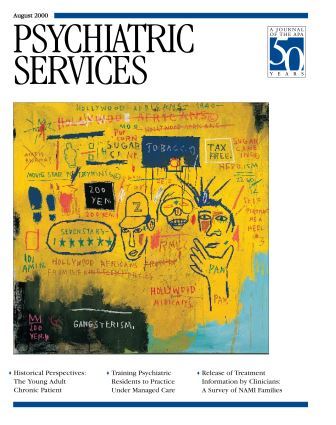The politics surrounding welfare, particularly since the 1960s, have always been entwined with race and racism. During the "great migration" between the early 1940s and the late 1960s, more than five million African Americans left the South for cities in the North. As Piven and Cloward (
1), Wilson (
2), Lemann (
3), and many others have documented, this migration left many African Americans stranded in poor urban neighborhoods, with diminishing access to jobs and other resources that promote social and economic security and well-being. Concentrated poverty and urban unrest were two of the consequences of this social process, and they have been influential in shaping poverty policy.
Martin Gilens picks up the story nearly 40 years later when the government, ironically under the leadership of a Democratic President, abandoned its long-standing commitment to caring for poor women and their children by rescinding their entitlement to public assistance. President Clinton signed the Personal Responsibility and Work Opportunity Reconciliation Act, the so-called welfare reform act, in August 1996. Dr. Gilens, a political scientist, asks why this change occurred and suggests some interesting answers.
By analyzing numerous surveys about attitudes of Americans, particularly white Americans, toward many social topics, the author develops the following hypothesis: Americans support helping the poor and are willing to support social programs that do not directly serve their own class interests; however, they are averse to supporting welfare because they believe that it primarily benefits African Americans and that African Americans lack a suitable work ethic.
White Americans believe that the majority of welfare recipients are black, even though the majority are white, because the news media consistently portray images of African Americans when reporting on poverty and welfare, Dr. Gilens points out. And to make matters worse, sympathetic stories about poverty are more likely to feature white families while critical stories more often than not focus on African Americans. Dr. Gilens explores possible reasons for this perspective, focusing on how attitudes are formed.
Why Americans Hate Welfare covers important territory. It adds to the existing literature about the relationship between poverty, race, and antipathy to welfare by considering the role of the media in influencing public opinion, using sound statistical techniques to develop and support the primary thesis. It is an interesting, well-written, and informative book.
However, the book's arguments could have been strengthened in a number of ways. Although Dr. Gilens usefully draws on social psychology to increase understanding of why the media portray African Americans so stereotypically and negatively, his discussion could be framed in more of a sociological context. For example, he says that newspapers and magazines would benefit from hiring more people of color as reporters and editors; that is an extremely important point, but it says little about the social function of the media, about who owns the various publications and broadcast outlets, or about the Eurocentric ideology that permeates the mass media. Even nonwhite reporters must contend with this social context and face tremendous pressure to conform to predominantly white institutions.
Dr. Gilens often seems at pains to demonstrate that white Americans are not overtly racist but instead hold fixed, false stereotypes about African Americans. Yet such stereotypes often are a manifestation of institutional racism, the social arrangements that privilege some while excluding others and the political ideology that legitimates this stance. The book's downplaying of racism as a primary force leads to a lack of recommendations about how to challenge racism, despite the author's convincing argument about the racialization of poverty policy.
Dr. Gilens focuses on poverty policy in his excellent chapter tracing the history of modern poverty policy, but he neglects the larger political context, such as the inexorable and conscious redistribution of wealth to the nation's richest citizens while programs to the poor were cut during the Reagan regime. There is also little consideration of the salience of single parenthood and how it interacts with opportunity, race, poverty, and public opinion about welfare. Lastly, the book relies almost exclusively on public opinion surveys. It could have been enhanced by other research methodologies, such as interviewing, to explore the complex web of beliefs and attitudes that shape welfare policy.
Obviously, no book can cover everything, and despite its shortcomings, Why Americans Hate Welfare is an excellent volume. It would be of great value to anyone interested in poverty policy and the role of the media in constraining and misdirecting the public discourse. Many readers of this journal work with poor people whose lives have been dramatically altered by the seismic changes in welfare policy over the past five years. It is important that we mental health professionals who are interested in advocating for our patients understand the attitudes, perceptions, and beliefs, which Why Americans Hate Welfare so effectively illustrates, that contribute to public policies that affect the poor.

